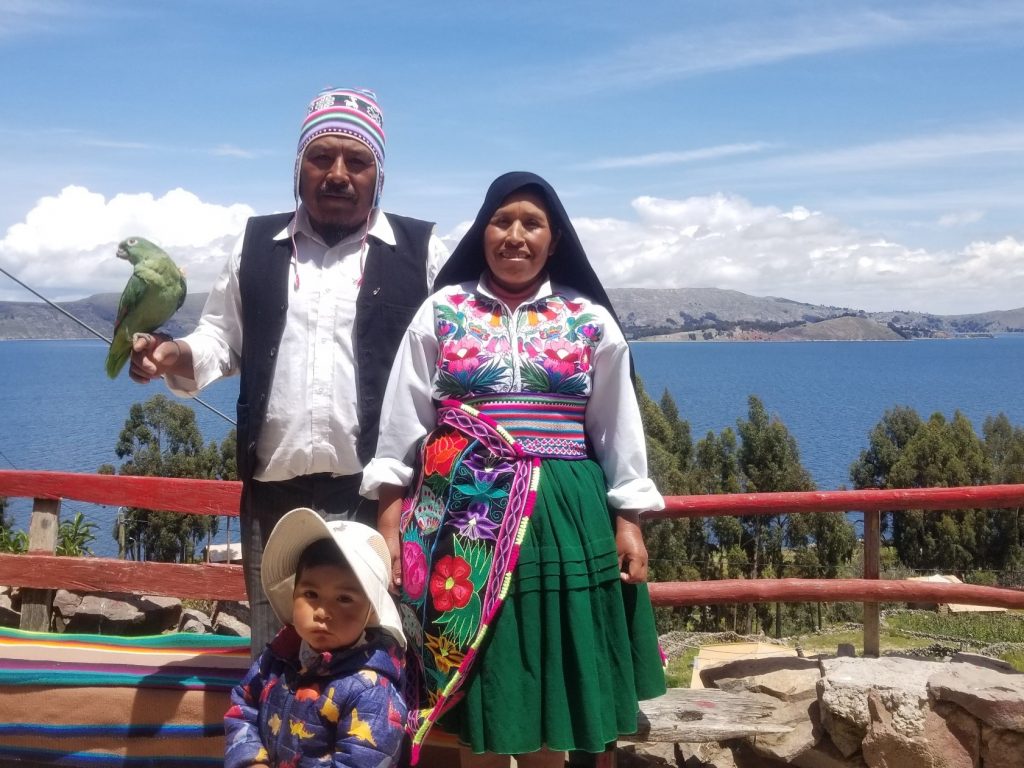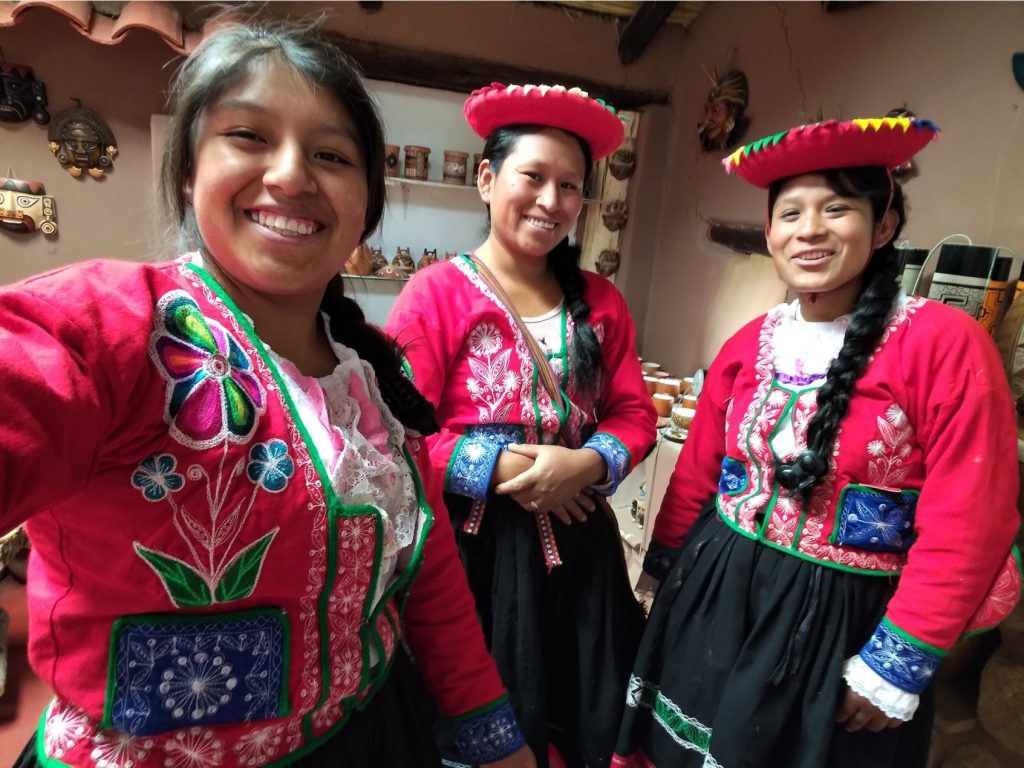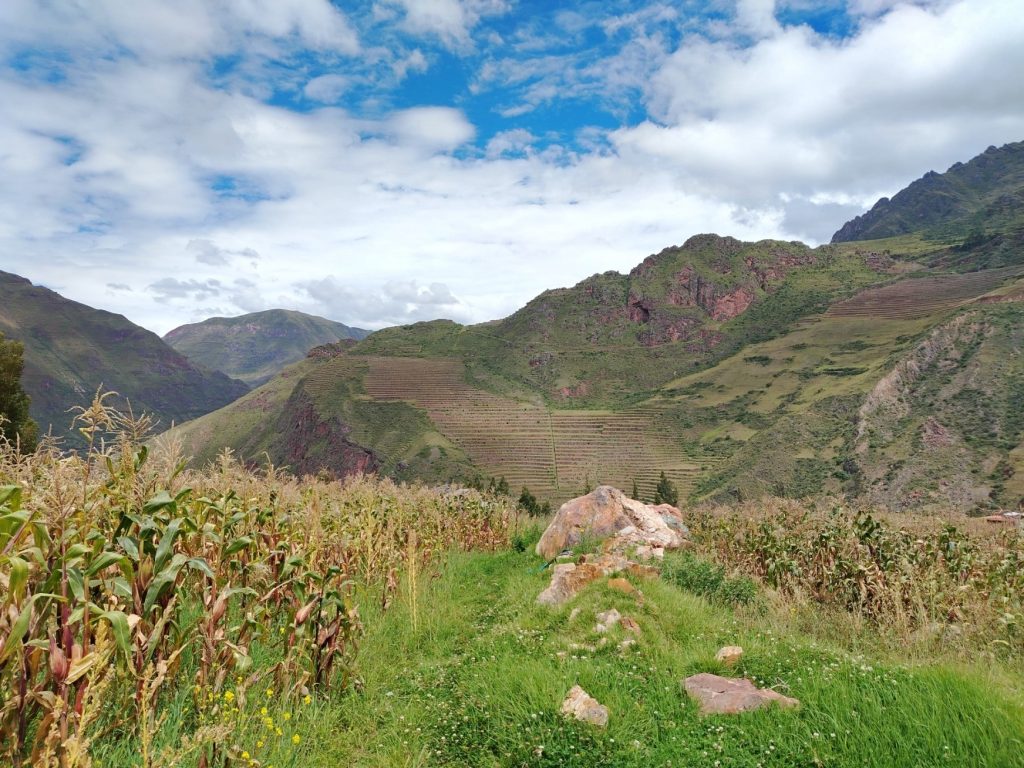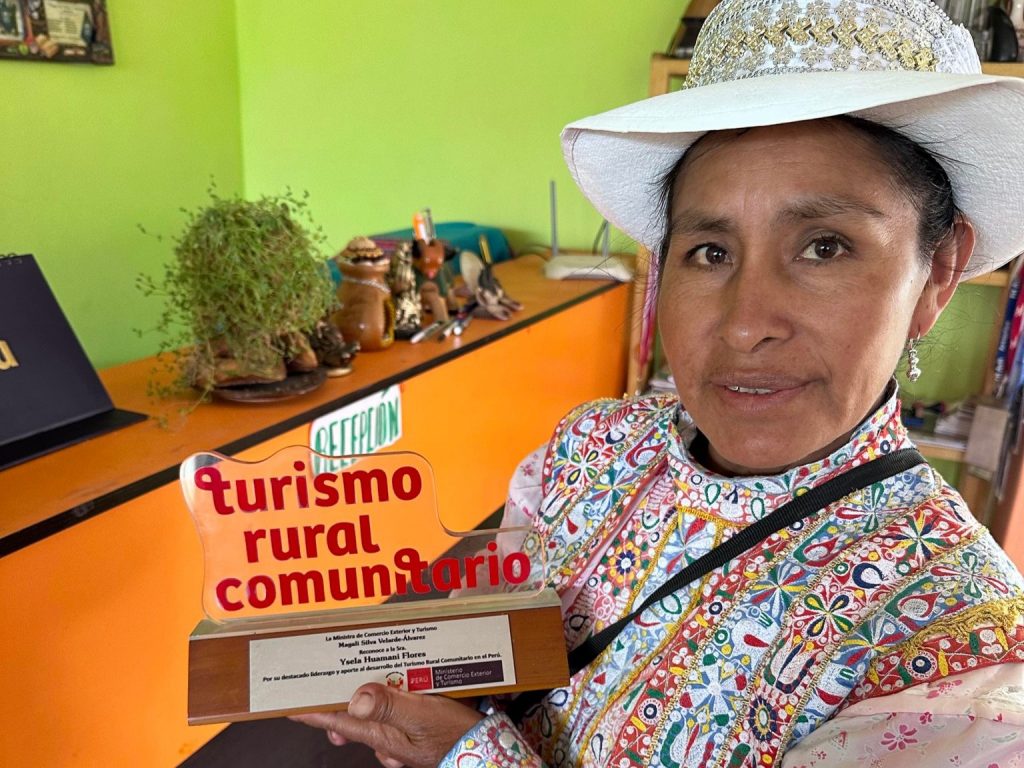Exploration in solidarity lands
(2024)




Peru is a country of great biodiversity, cultural wealth and natural heritage, particularly in the Andes. However, this wealth is threatened by the overuse of natural resources, pollution and climate change. Sustainable tourism, which takes into account the environmental, economic and social impacts of tourism, helps preserve biodiversity and local cultures while generating income for local communities. It also enables environmental conservation, a lower carbon footprint than traditional tourism, and the promotion of eco-responsible practices. In addition, sustainable tourism encourages the participation and empowerment of local communities in the management of their resources, offering them employment and training opportunities in the tourism sector.
Within the framework of this specific project, particular attention will be paid to indigenous tourism and the community tourism model. Indigenous communities in Peru are often located in natural areas that are particularly vulnerable to environmental degradation. Sustainably developed indigenous tourism represents an opportunity for communities to promote their culture while preserving and enhancing their environment and natural treasures. It also represents a major economic opportunity for rural communities. This translates into the creation of small businesses that support economic growth and the generation of income that complements and supplements their main activity, which is often agriculture. Visitors can buy local produce, eat locally-prepared food, use services offered and developed by community members, and take part in guided activities, helping to stimulate the local economy while preserving local culture and traditions.
Finally, sustainable indigenous tourism helps to build the capacity of the local community members involved. Indeed, local people play an active role in promoting tourism in their community, encouraging cooperation, communication and collaboration between community members. This can help strengthen social ties, improve the quality of life of local residents and reduce the phenomenon of rural exodus.
Indeed, the tourism sector is an important driver of economic growth, business development and job creation, particularly for women, young people and local communities. Before the COVID-19 crisis, it accounted for one in ten jobs worldwide and around 10% of global GDP. The sector employs a high proportion of women and young people: in 2019, women accounted for over 50% of workers in the sector, and the majority of all tourism workers were under 35. However, tourism was one of the industries hardest hit by the COVID-19 pandemic. The impact on businesses, particularly MSMEs [micro, small and medium-sized enterprises], was unprecedented, and is still having an impact today. Today, as we reach the stage of tourism recovery, this recovery must be human-centered, inclusive, sustainable and resilient. Moreover, sustainable tourism can contribute to the fight against the overexploitation of natural resources in tourist destinations and to the sustainability of economic activities in local and neighbouring communities (International Labour Organization, 2022), particularly in a destination with high tourism potential like Peru.
Finally, this project, in comparison with other explorations in solidarity lands, has the particularity of encouraging intercultural immersion in an aboriginal community for 2 young people from aboriginal communities in Quebec, by offering them a first full week in an aboriginal community with the local partner, enabling a series of workshops to be held to share and learn about the respective cultures between the young Quebec volunteers, supervised by a Kina8at guide, and the host community.
In this context, Village Monde is offering two young people from local indigenous communities a 3-week commitment to a unique immersion experience while supporting various rural communities in Peru, by developing an itinerary that will enable them to visit indigenous communities and interact with community members, including young people involved in the sustainable tourism sector to which they will be able to relate.


Subscribe to the travel newsletter from our collaborative booking platform Vaolo to find out what’s new, follow our explorers and receive tips for more conscious travel.
The use of the masculine gender has been adopted for ease of reading and has no discriminatory intent.
© 2026 All rights reserved. Village Monde.
By continuing to use the site, you agree to our privacy and cookie policy
I accept